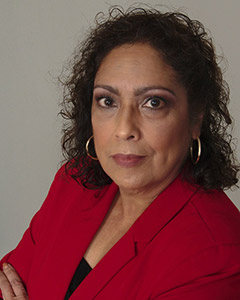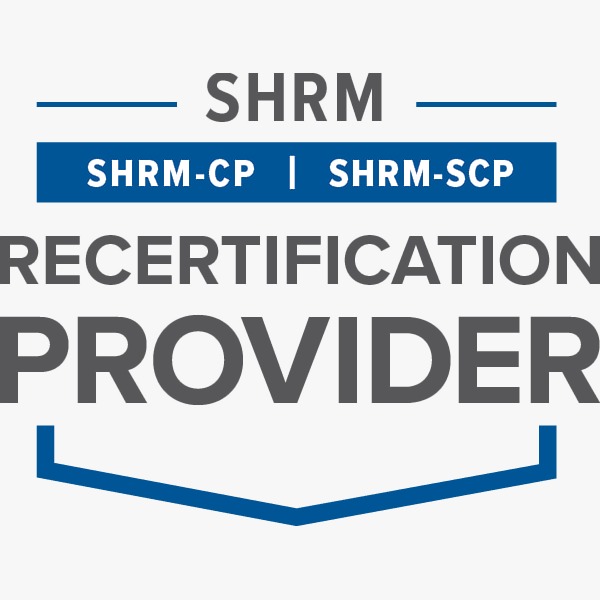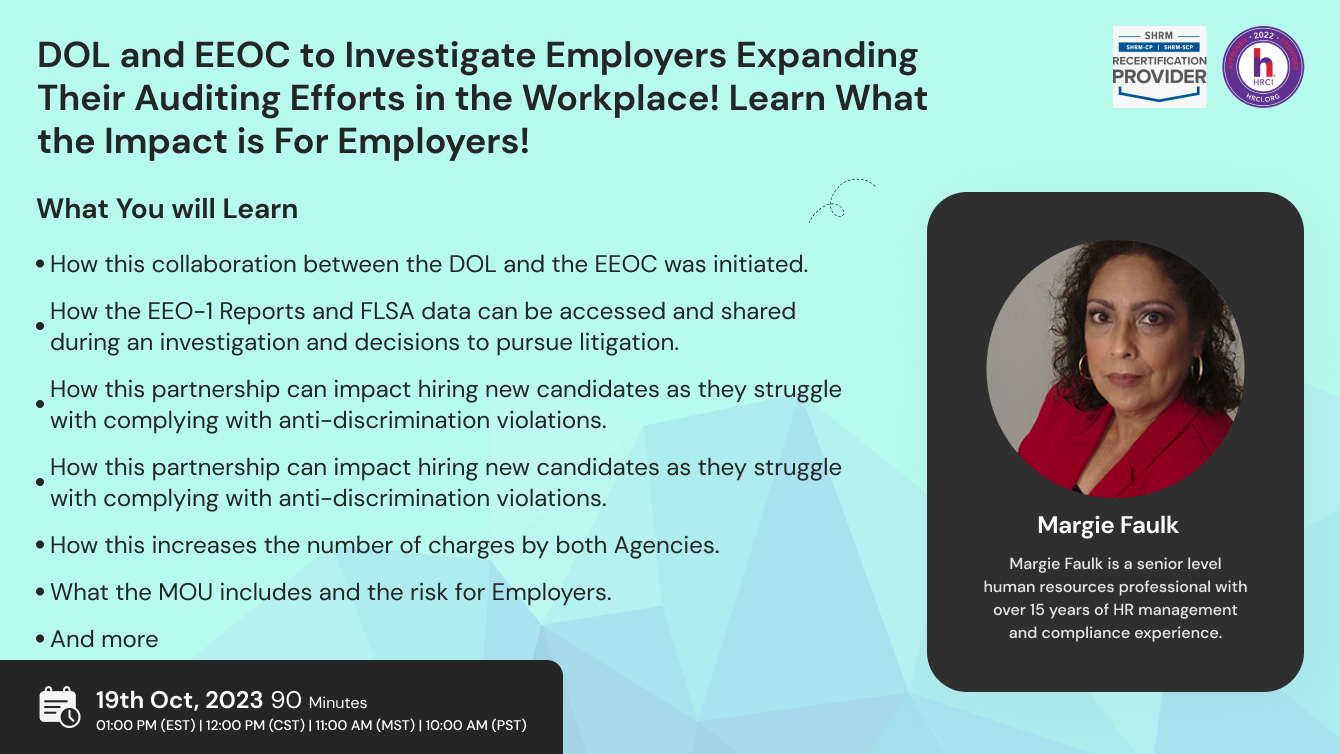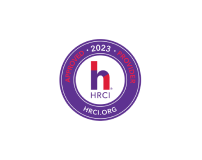EEOC and DOL: Memorandum of Understanding
The Equal Employment Opportunity Commission (“EEOC”) and the Wage and Hour Division of the Department of Labor (“WHD”) entered into a far-reaching Memorandum of Understanding (“MOU”) last week under which the two agencies agreed to work together to increase enforcement of the federal laws administered by the two agencies through information sharing, joint investigations, training, and outreach.
On September 14, 2023, the EEOC and WHD announced that they had entered into a Memorandum of Understanding enabling information sharing, joint investigations, training, and outreach. The purpose of this MOU is to maximize and improve the enforcement of the federal laws administered by DOL/WHD and by the EEOC. This MOU will encourage enhanced law enforcement and greater coordination between the agencies through information sharing, joint investigations, training, and outreach. The MOU now empowers the agencies’ field staff to coordinate efforts on both individual matters and larger investigations.
The EEOC’s press release, and some initial media coverage, have focused on the agencies’ coordinated efforts relating to the recently enacted PUMP Act (extending to more nursing employees the rights to receive break time to pump and a private place to pump at work) and the Pregnant Workers Fairness Act (requiring reasonable accommodations for limitations related to pregnancy, childbirth, or related medical conditions). However the MOU’s information-sharing and other contemplated coordinated activity provisions go far beyond those statutes, covering a broad range of activities, touching on all aspects of EEOC and WHD jurisdiction.
What You will Learn
- How this collaboration between The DOL and the EEOC was initiated.
- How the EEO-1 Reports and FLSA data can be accessed and shared during an investigation and decisions to pursue litigation.
- How this partnership can impact hiring new candidates as they struggle with complying with anti-discrimination violations.
- How the DOL can make recommendations to the EEOC to initiate an investigation.
- How this increases the number of charges by both Agencies.
- What the MOU includes and the risk for Employers.
- What efforts are included in the list of workplace laws.
- How the Coordinated Investigations and Enforcement component will be implemented.
- What happens when both agencies agree on charges against an Employer.
What We will Discuss
- What is included in the Training & Information Sharing components of the MOU.
- Which other federal regulatory agencies have collaborations and MOUs.
- How Employers can better prepare for the impact of the Agency’s compliance efforts.
- How Employers need to train managers and supervisors about this collaboration and how to avoid risk.
- What laws are impacted by this collaboration and how to prioritize risk management strategies.
Why You Should Attend
Employers can expect to see an increase in investigations given the WHD’s and the EEOC’s commitment to heightened enforcement and their ability to share information and coordinate investigations. Against this backdrop, employers should consult with counsel regarding the scope and content of information to be produced to or shared with either agency, whether during an investigation or in connection with federally mandated reporting, given the possibility that such information may be shared with both agencies and open the door for the other to intervene. This enforcement initiative should make Employers concerned about an increase in potential litigation by both organizations and more risk exposure as they expand auditing efforts.
Who will Benefit
- Business Owners
- All Employers
- Company Leadership
- Compliance professionals
- HR Professionals
- Managers
- Supervisors

Margie Faulk
Margie Faulk is a senior level human resources professional with over 15 years of HR management and compliance experience. A current Compliance Advisor for HR Compliance Solutions, LLC, Margie, has worked as an HR Compliance advisor for major corporations and small businesses in the small, large, private, public, Non-profit sectors and International compliance. Margie has provided small to large businesses with risk management strategies that protect companies and reduces potential workplace fines and penalties from violation of employment regulations. Margie is bilingual (Spanish) fluent and Bi-cultural. Margie’s area of expertise includes Criminal Background Screening Policies and auditing, I-9 document correction and storage compliance, Immigration compliance, employee handbook development, policy development, sexual harassment investigations/certified training, SOX regulations, payroll compliance, compliance consulting, monitoring US-based federal, state and local regulations, employee relations issues, internal investigations, HR management, compliance consulting, internal/external audits, and performance management. Margie’s unique training philosophy includes providing free customized tools for all attendees. These tools are customized and have been proven to be part an effective risk management strategy. Some of the customized tools include the I-9 Self Audit. Correction and Storage program, Ban the Box Decision Matrix Policy that Employers can provide in a dispute for allegations, Family Medical Leave Act (FMLA) Compliance Guide, Drug-Free Workplace Volatile Termination E-Book and other compliance program tools when attendees register and attend Margie’s trainings. Margie holds professional human resources certification (PHR) from the HR Certification Institution (HRCI) and SHRM-CP certification from the Society for Human Resources Management. Margie is a member of the Society of Corporate Compliance & Ethics (SCCE).

SHRM -
Standeagle is recognized by SHRM to offer Professional Development Credits (PDCs) for the SHRM-CPSM or SHRM-SCPSM. This program is valid for 1.5 PDCs for the SHRM-CPSM or SHRM-SCPSM. For more information about certification or recertification, please visit - portal.shrm.org.

HRCI -
This webinar has been approved for 1.5 HR (General) re-certification credit hours toward California, GPHR, HRBP, HRMP, PHR, and SPHR recertification through the HR Certification Institute.
The use of this seal is not an endorsement by the HR Certification Institute of the quality of the activity. It means that this activity has met the HR Certification Institute’s criteria to be pre-approved for re-certification credit.

ACCREDITATIONS


